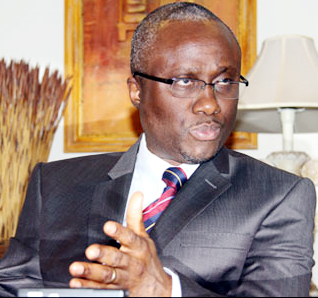Saudi-Yemen Barrier Blocks Ethiopian Migrants
 A popular path for Ethiopians to work as illegal household help in Saudi Arabia has been blocked by construction of a 75 kilometer-long three meter-high concrete-filled pipline, that is supposed to eventually span the entire 1,800 kilometer Saudi-Yemen border.
A popular path for Ethiopians to work as illegal household help in Saudi Arabia has been blocked by construction of a 75 kilometer-long three meter-high concrete-filled pipline, that is supposed to eventually span the entire 1,800 kilometer Saudi-Yemen border.The Saudi-Yemen Barrier is designed to discourage illegal entry by Yemenis and other foreigners from sneaking across the border for work, to stop smugglers bringing in weapons for extremists and to end the shipment of qat – a plant whose leaves are a mild but illegal stimulant – to eager Saudi consumers.
Early construction has already cut off the route taken by thousands of poor Ethiopians seeking household jobs in Saudi Arabia’s wealthy middle class.
According to International Office for Migration (IOM) officials in Sana’a, 25,000 Ethiopians hoping for jobs as maids, cooks, nannies, gardeners and drivers in Saudi cities have been stopped at the barrier and now live in scattered temporary encampments not far from the fence.
IOM operates an emergency center there that provides water, food and medical help daily to about 3,500 of the most needy, said Marco Chimenton of the IOM office in Sana’a. The IOM has also repatriated thousands of Ethiopians from Yemen but has faced problems funding the flights in recent years.
Foreigners do Saudi menial labor
Saudi officials estimate that a million jobs in the Kingdom are filled by foreign workers. Most are filling low-paying positions. “Anyone doing any sort of menial labor is basically a foreigner,” said Adam Coogle of Human Rights Watch in Amman.
Traditionally, the largest percentage of domestic workers – about 60,000 - in Saudi Arabia come from the Philippines, said Dr. Ahmed F. Al Fahaid, the Ministry of Labor’s deputy for international affairs. In protest of Saudi working conditions, the Republic of the Philippines last year banned their domestic workers from further entry to the Kingdom until a bi-lateral agreement was reached. Ethiopians began competing in earnest for those Saudi jobs.
The Philippine Overseas Labor Office has since negotiated a Saudi agreement to, among other things, guarantee $400 monthly wages and the freedom to change jobs. They signed their new agreement with the Saudi Ministry of Labor and Social Affairs in May.
Ethiopians bound for the homes in the Kingdom
Work conditions in Saudi Arabia for migrant domestic laborers - and particularly for housemaids - have long been criticized by Human Rights Watch and other watchdog agencies that cite unsafe housing, nonpayment of workers, rape and other physical abuse.
Al Fahaid said the Ministry of Labor completed a set of regulations in July that for the first time addresses conditions and protections for the Kingdom’s 1 million foreign domestic workers.
Recent local Saudi media accounts have focused on Ethiopian housemaids as perpetrators of violence. In July, a Jeddah police spokesman said many accusations against Ethiopians have “turned out to be inconsequential” but anxious Saudi mothers have engaged in an anti-Ethiopian housemaid campaign on Twitter.
About 200 Ethiopians who ran away from their places of employment were being treated for psychological problems in a Riyadh center for housemaids, according to the Saudi Gazette.
“We had some problems, especially with the Ethiopians, and decided to temporarily stop and review the case,” said Al Fahaid. “We found out through a consultant … that most problems started long before the workers came here – especially domestic workers.”
Foreign workers who try to change employers are in violation of Saudi law and subject to deportation because they violate kafala – the Saudi custom of sponsorship that denies a foreign worker the right to change jobs without the employers consent. Some labor advocates have compared the system to slavery. Bahrain has outlawed it.
 The largest consignment of transformers made by Lanka Transformer company, a subsidiary of the Lanka Electric Company, was exported to Ethiopia recently.
The largest consignment of transformers made by Lanka Transformer company, a subsidiary of the Lanka Electric Company, was exported to Ethiopia recently.
 Nigeria football fans wishing to watch the October 13 World Cup playoff tie between the Super Eagles and the Walya Antelopes of Ethiopia in Addis Ababa, now have the opportunity to do so at subsidized rate, so says Ethiopian Airlines, which has outlined plans to airlift teeming Nigerian soccer fans to Ethiopia at reduced cost.
Nigeria football fans wishing to watch the October 13 World Cup playoff tie between the Super Eagles and the Walya Antelopes of Ethiopia in Addis Ababa, now have the opportunity to do so at subsidized rate, so says Ethiopian Airlines, which has outlined plans to airlift teeming Nigerian soccer fans to Ethiopia at reduced cost.












